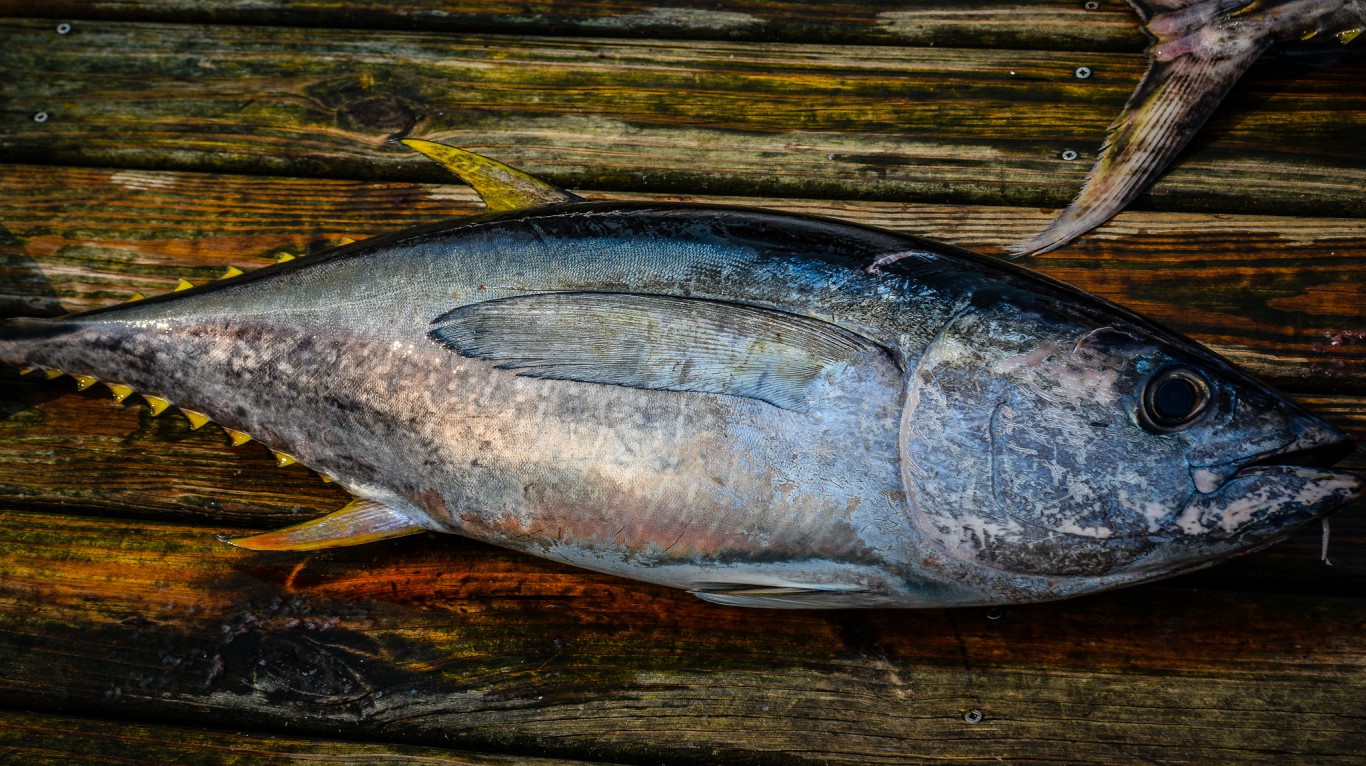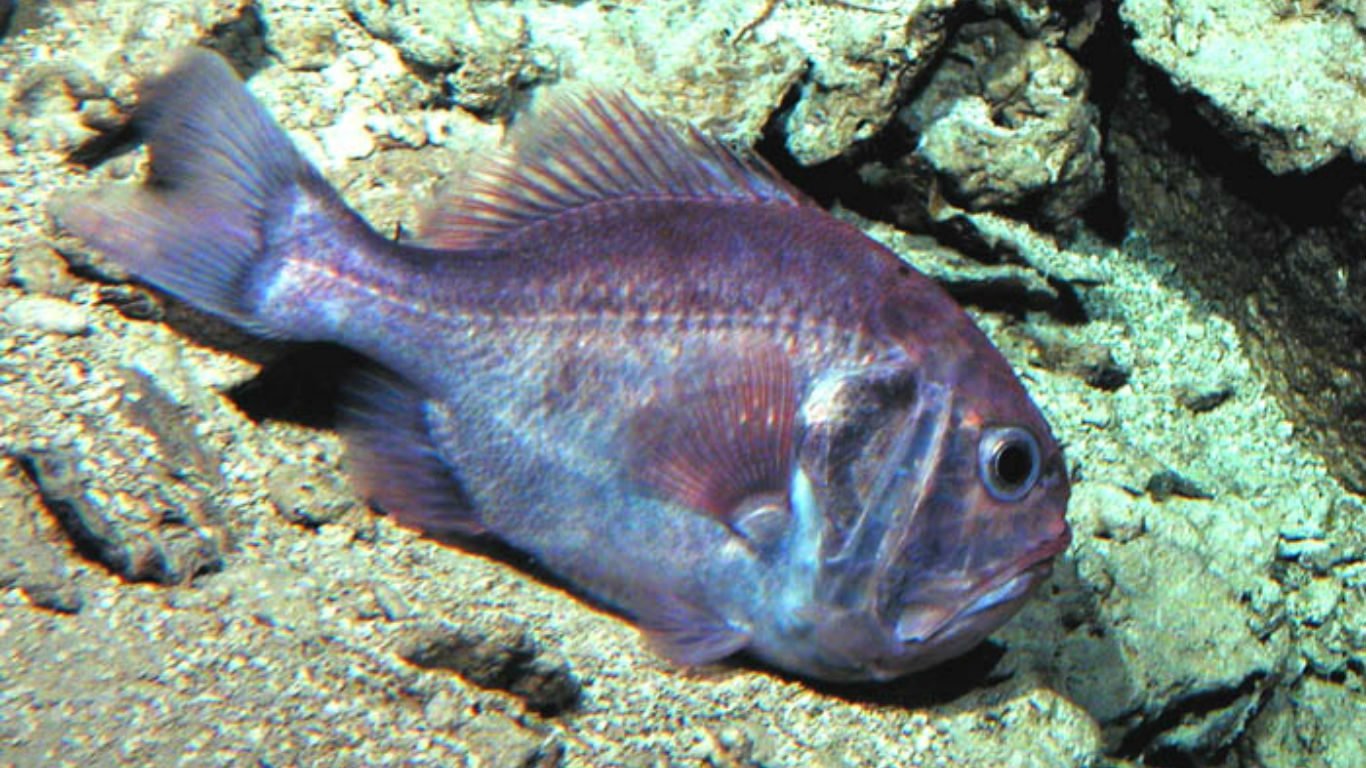
6. Orange Roughy
> Reason to avoid: High in mercury, depleted populations
> Farmed or wild-caught: Wild-caught
The first thing you should know about this fish is that an alternative name for it is slimehead. According to Greenpeace, “Many orange roughy stocks have already crashed…and recently discovered stocks are decreasing rapidly. In addition, it is slow-growing — it can live to be 100 years old — so it has a lot of time for the bioaccumulation of mercury.
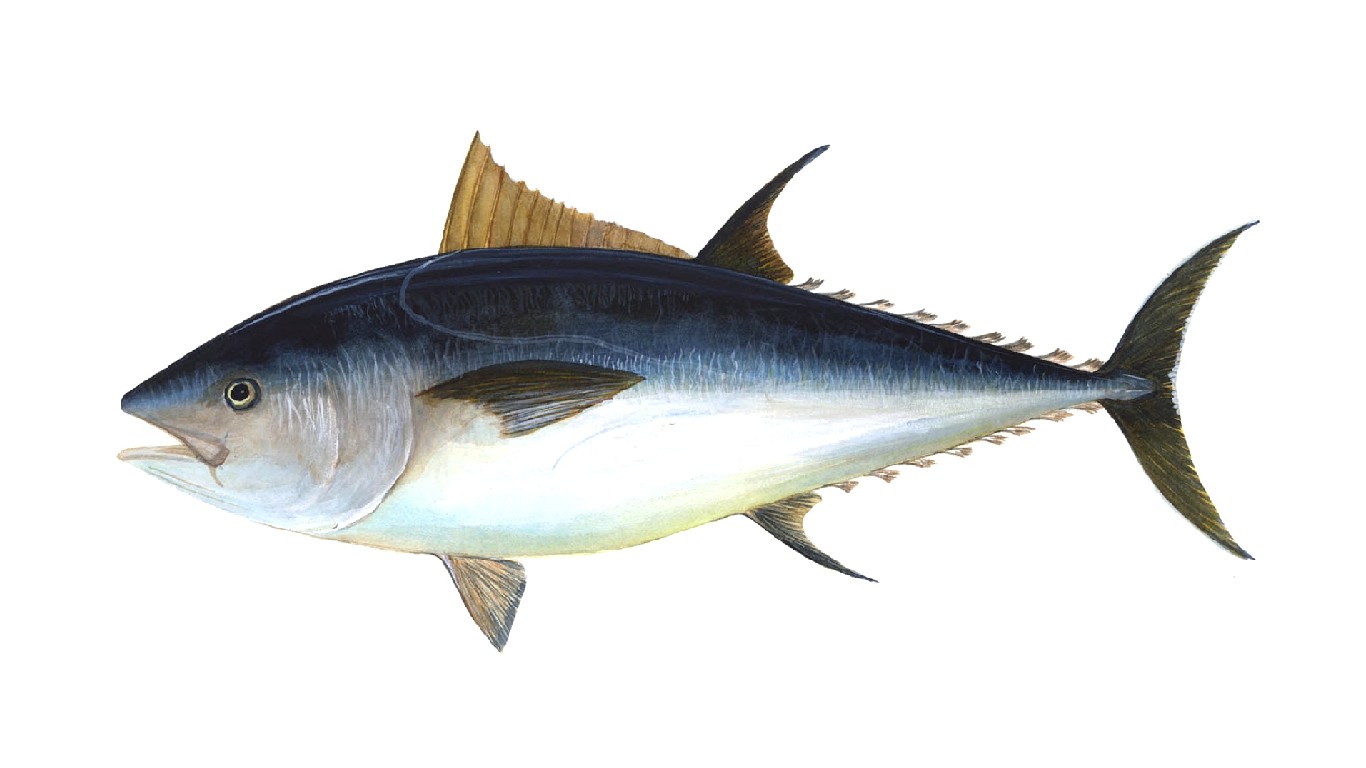
7. Bluefin Tuna
> Reason to avoid: High in mercury and PCBs, severely depleted populations, risks to other species, illegal fishing
> Farmed or wild-caught: Wild-caught
Highly valued as a delicacy — the owner of a Japanese sushi chain paid $3.1 million for a 613-pound specimen earlier this year — bluefin tuna is one of the most endangered major marine species. Populations of all three varieties — Atlantic, Pacific, and Southern — have declined precipitously in the past few decades. As a food item they are to be avoided for their high levels of toxins.
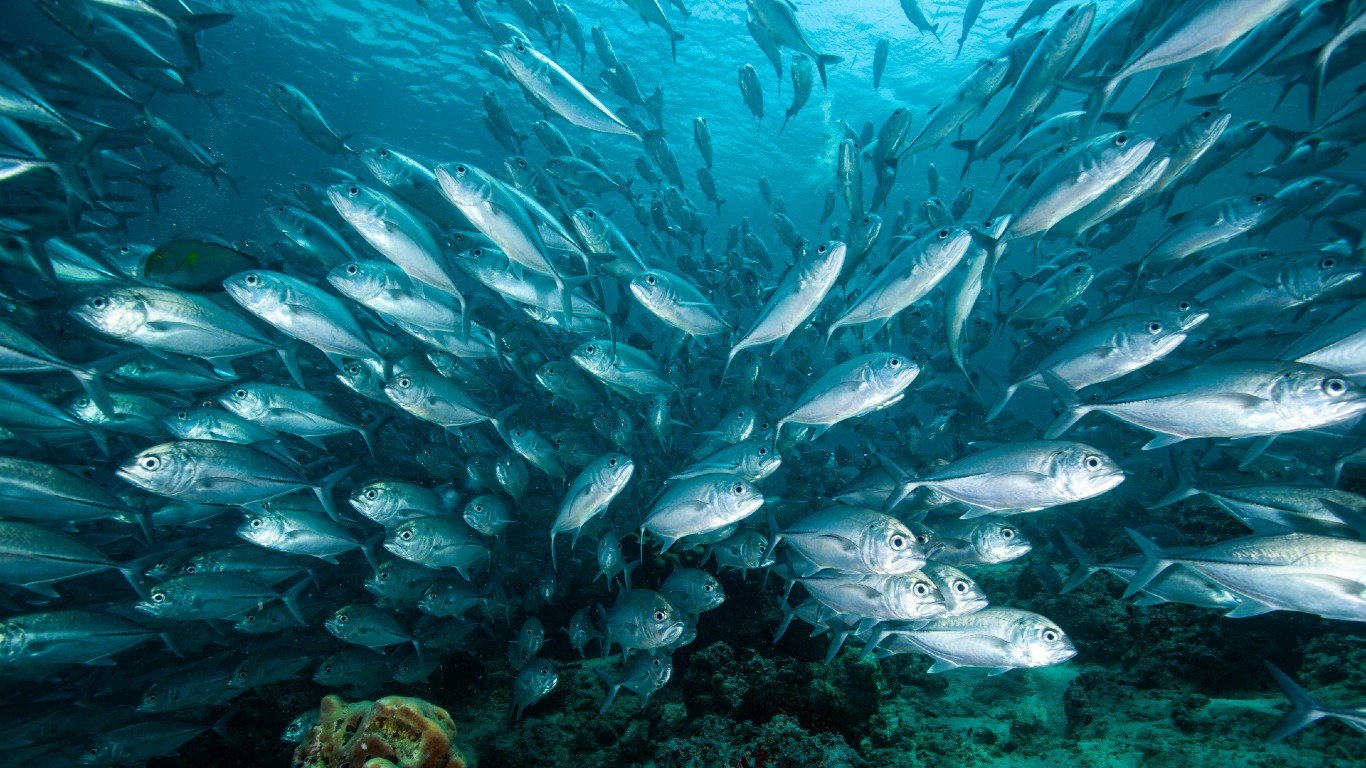
8. Bigeye Tuna
> Reason to avoid: High in mercury, destructive fishing methods, illegal fishing
> Farmed or wild-caught: Wild-caught
Bigeye is one of two species of tuna called ahi, and like other tuna is high in mercury. Conservationists urge that consumers choose tuna other than bigeye because of its diminishing numbers due to unsustainable fishing practices, including so-called IUU (illegal, unregulated, and unreported) harvesting by pirate longliners.
9. Yellowfin Tuna
> Reason to avoid: High in mercury, destructive fishing methods, illegal fishing
> Farmed or wild-caught: Wild-caught
Like all tuna, yellowfin — the other species marketed as ahi — is extremely nutritious, but like other large fish, it is contaminated by mercury. Compared with other tuna species, it has about the same amount of mercury as albacore, twice the amount of skipjack, and half as much as bigeye. Yellowfin is overfished, and sea turtles, sharks, and seabirds are often taken as bycatch.
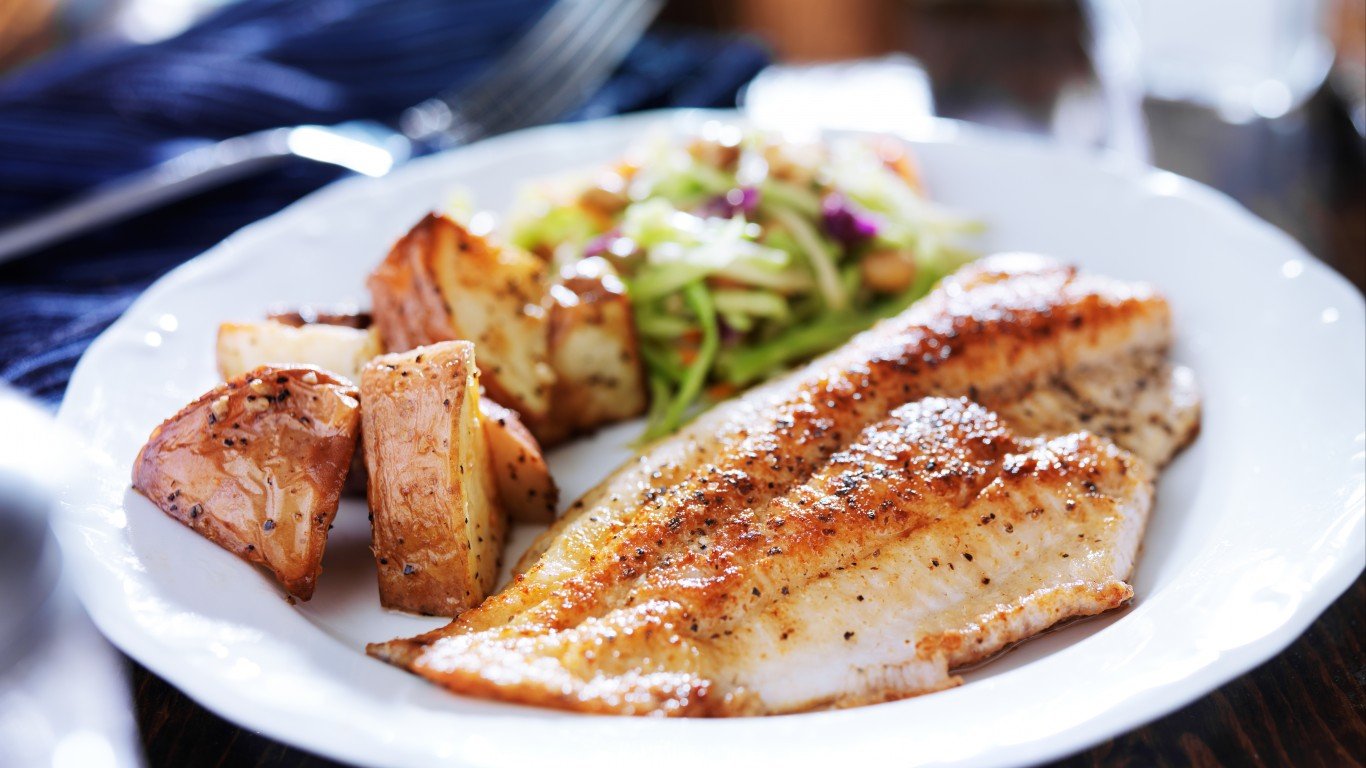
10. Tilapia from China
> Reason to avoid: Dosed with antibiotics, negative habitat impact
> Farmed or wild-caught: Farmed
Tilapia is generally a safe bet and a healthy, inexpensive choice, but origin is important. Avoid tilapia from China, where concerns include illegal use of antibiotics by farmers and widespread escape of the fish from flooded farming regions and subsequent impact on local wild species. Some health authorities warn against tilapia because of its high Omega-6 content, but the American Heart Association says that “Omega-6 fats are not only safe but they are also beneficial for the heart and circulation.”
